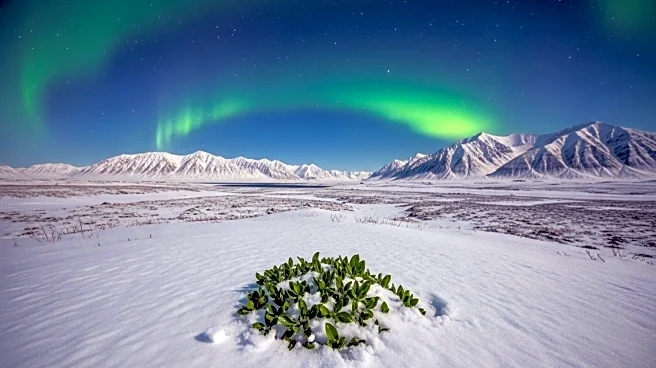What's Happening?
A scientific expedition led by NPR climate correspondent Alejandra Borunda explored Greenland's Inuit Qeqertaat, also known as Kaffeeklubben Island, the northernmost undisputed point of land on Earth. The researchers aimed to identify plant species growing at this extreme location. The expedition revealed the challenges and realities of conducting scientific research in such remote and harsh environments, including navigating through mud and ice.
Why It's Important?
The discovery of plant life on Kaffeeklubben Island provides valuable insights into the resilience and adaptability of ecosystems in extreme conditions. Understanding how plants survive in such environments can inform broader ecological studies and climate change research. These findings contribute to the global understanding of biodiversity and the potential impacts of climate change on fragile ecosystems.
What's Next?
Further research may be conducted to study the ecological dynamics and interactions of plant species on Kaffeeklubben Island. Scientists may also explore the implications of climate change on these ecosystems, particularly how rising temperatures and changing weather patterns could affect plant survival and distribution. Collaborative efforts between international research teams could enhance the understanding of polar ecosystems.
Beyond the Headlines
The expedition highlights the importance of scientific exploration in remote areas to uncover hidden aspects of biodiversity. It also underscores the need for continued investment in research to address environmental challenges and promote conservation efforts. The findings may inspire future expeditions to other remote locations to study the impacts of climate change on global ecosystems.









